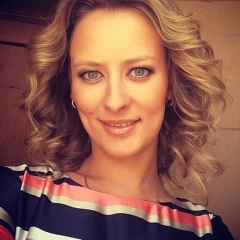Одна из главных бед наших в английском - это неправильное употребление времен английских глаголов. Привожу здесь очень даже полезное пособие.
После двух прочтений насмерть запоминается.
Система английских времен с точки зрения употребления глагола “to vodka” :
1. Во-первых, необходимо уяснить, что в этом языке существуют глаголы:
1.1. неопределенные (Indefinite), т.е. неизвестно, пьешь ты или нет,
1.2. длительные (Continuous), т.е. ты давно и продолжаешь,
1.3. завершенные (Perfect), т.е. ты либо вышел из запоя, либо уже окончательно напился и вырубился.
2. Во-вторых, существует объективное:
2.1. настоящее (Present) - ваше отношение к спиртному,
2.2. прошлое (Past) - темное или светлое,
2.3. будущее (Future) – то, что нам светит: цирроз, белая горячка и т.д.
3. Теперь все смешиваем.
3.1. Present:
3.1.1. Present Indefinite (настоящее неопределенное), см. выше.
I vodka every day. - Я пью водку каждый день. Вместо
every day можно употреблять выражения: usually, seldom, often,
from time to time, from melkaya posuda, bolshimi glotkami…
3.1.2. Present Continuous (настоящее длительное):
I am vodking now. – Я пью водку сейчас.
Для эмфатического усиления с этим временем можно употреблять
наречия:
He is constantly vodking! – Он постоянно поддатый!
3.1.3. Present Perfect (настоящее завершенное):
I have already vodked. - Я уже нажрамшись. (В ответ на
предложение выпить)
3.1.4. Present Perfect Continuous (настоящее завершенно-продолженное):
I have been vodking since childhood.
- Я пью водку с детства (тип inclusive).
- Я пил водку с детства, но уже не пью (тип exclusive).
3.2. Past :
3.2.1. Past Indefinite (прошедшее неопределенное):
I vodked yesterday. - Я напился вчера.
(не путать со временем 3.1.3., там ты напился только что).
3.2.2. Past Continuous (прошедшее длительное):
Часто употребляется, как придаточное предложение к главному во
времени 3.2.1
- Unfortunately, I was vodking at the moment my wife came.
- К несчастью, я пил водку в тот момент, когда пришла жена.
3.2.3. Past Perfect (прошедшее завершенное):
Также употребляется, как придаточное.
- I had already vodked when my wife came.
- Я уже упился, когда вошла жена.
3.2.4. Past Perfect Continuous (прошедшее звершенно-продолженное):
- I had been vodking for about a month when my wife came.
- Я пил водку уже около месяца, когда вошла моя жена.
3.3. Future :
3.3.1. Future Indefinite (будущее неопределенное):
I will vodka tomorrow. - Я буду пить водку завтра.
Примечание: В придаточных предложениях времени и условия
(т.е. при отсутствии подходящего времени и условий) вместо
времени 3.3.1. употребляется время 3.1.1.:
- If I vodka tomorrow I will be sick the day after tomorrow.
- Если я выпью завтра, я буду болеть послезавтра.
3.3.2. Future Continuous (будущее длительное):
I will be vodking tomorrow at 5. - Я буду заниматься
употреблением горячительных напитков завтра в 5.
Примечание: При горячем желании опохмелиться вместо
времени 3.3.1. можно употреблять время 3.3.2. :
- Soon! Soon I will be vodking!
- Скоро! Скоро я буду пить водку!
3.3.3. Future Perfect (будущее завершенное):
Употребляется при планировании состояния опьянения
- To morrow by 5 o’clock I will have vodked.
- Завтра к пяти я буду нажрамшись.
3.3.4. Future Perfect Continuous (будущее завершенно-длительное):
- By to morrow morning I will have been vodking for a week.
- К завтрашнему утру я буду пить водку неделю.
После двух прочтений насмерть запоминается.
Система английских времен с точки зрения употребления глагола “to vodka” :
1. Во-первых, необходимо уяснить, что в этом языке существуют глаголы:
1.1. неопределенные (Indefinite), т.е. неизвестно, пьешь ты или нет,
1.2. длительные (Continuous), т.е. ты давно и продолжаешь,
1.3. завершенные (Perfect), т.е. ты либо вышел из запоя, либо уже окончательно напился и вырубился.
2. Во-вторых, существует объективное:
2.1. настоящее (Present) - ваше отношение к спиртному,
2.2. прошлое (Past) - темное или светлое,
2.3. будущее (Future) – то, что нам светит: цирроз, белая горячка и т.д.
3. Теперь все смешиваем.
3.1. Present:
3.1.1. Present Indefinite (настоящее неопределенное), см. выше.
I vodka every day. - Я пью водку каждый день. Вместо
every day можно употреблять выражения: usually, seldom, often,
from time to time, from melkaya posuda, bolshimi glotkami…
3.1.2. Present Continuous (настоящее длительное):
I am vodking now. – Я пью водку сейчас.
Для эмфатического усиления с этим временем можно употреблять
наречия:
He is constantly vodking! – Он постоянно поддатый!
3.1.3. Present Perfect (настоящее завершенное):
I have already vodked. - Я уже нажрамшись. (В ответ на
предложение выпить)
3.1.4. Present Perfect Continuous (настоящее завершенно-продолженное):
I have been vodking since childhood.
- Я пью водку с детства (тип inclusive).
- Я пил водку с детства, но уже не пью (тип exclusive).
3.2. Past :
3.2.1. Past Indefinite (прошедшее неопределенное):
I vodked yesterday. - Я напился вчера.
(не путать со временем 3.1.3., там ты напился только что).
3.2.2. Past Continuous (прошедшее длительное):
Часто употребляется, как придаточное предложение к главному во
времени 3.2.1
- Unfortunately, I was vodking at the moment my wife came.
- К несчастью, я пил водку в тот момент, когда пришла жена.
3.2.3. Past Perfect (прошедшее завершенное):
Также употребляется, как придаточное.
- I had already vodked when my wife came.
- Я уже упился, когда вошла жена.
3.2.4. Past Perfect Continuous (прошедшее звершенно-продолженное):
- I had been vodking for about a month when my wife came.
- Я пил водку уже около месяца, когда вошла моя жена.
3.3. Future :
3.3.1. Future Indefinite (будущее неопределенное):
I will vodka tomorrow. - Я буду пить водку завтра.
Примечание: В придаточных предложениях времени и условия
(т.е. при отсутствии подходящего времени и условий) вместо
времени 3.3.1. употребляется время 3.1.1.:
- If I vodka tomorrow I will be sick the day after tomorrow.
- Если я выпью завтра, я буду болеть послезавтра.
3.3.2. Future Continuous (будущее длительное):
I will be vodking tomorrow at 5. - Я буду заниматься
употреблением горячительных напитков завтра в 5.
Примечание: При горячем желании опохмелиться вместо
времени 3.3.1. можно употреблять время 3.3.2. :
- Soon! Soon I will be vodking!
- Скоро! Скоро я буду пить водку!
3.3.3. Future Perfect (будущее завершенное):
Употребляется при планировании состояния опьянения
- To morrow by 5 o’clock I will have vodked.
- Завтра к пяти я буду нажрамшись.
3.3.4. Future Perfect Continuous (будущее завершенно-длительное):
- By to morrow morning I will have been vodking for a week.
- К завтрашнему утру я буду пить водку неделю.
One of the main troubles of ours in English is the misuse of the tenses of English verbs. I give here a very useful guide.
After two readings to death is remembered.
The system of English tenses in terms of the use of the verb “to vodka”:
1. First, it is necessary to understand that there are verbs in this language:
1.1. indefinite, i.e. it is not known whether you drink or not
1.2. long (Continuous), i.e. you continue for a long time,
1.3. completed (Perfect), i.e. You either got out of binge drinking, or you were completely drunk and already passed out.
2. Secondly, there is an objective:
2.1. present (Present) - your attitude to alcohol,
2.2. past (Past) - dark or light,
2.3. the future (Future) - what shines us: cirrhosis, delirium tremens, etc.
3. Now we mix everything up.
3.1. Present:
3.1.1. Present Indefinite (present indefinite), see above.
I vodka every day. - I drink vodka every day. Instead
Every day you can use the expression: usually, seldom, often,
from time to time, from melkaya posuda, bolshimi glotkami ...
3.1.2. Present Continuous (currently long lasting):
I am vodking now. - I drink vodka now.
For emphatic gain with this time you can use
adverbs:
He is constantly vodking! - He is constantly poddaty!
3.1.3. Present Perfect (currently completed):
I have already vodked. - I'm already pissed. (In response to
offer to drink)
3.1.4. Present Perfect Continuous:
I have been vodking since childhood.
- I have been drinking vodka since childhood (inclusive type).
- I drank vodka since childhood, but no longer drink (type exclusive).
3.2. Past:
3.2.1. Past Indefinite (past indefinite):
I vodked yesterday. - I got drunk yesterday.
(not to be confused with time 3.1.3., there you just got drunk).
3.2.2. Past Continuous (past long):
Often used as a subordinate clause to the main point
time 3.2.1
- Unfortunately, I was vodking at the moment my wife came.
“Unfortunately, I drank vodka the moment my wife arrived.”
3.2.3. Past Perfect (past completed):
Also used as a subordinate.
- I had already vodked when my wife came.
- I already drunk when my wife entered.
3.2.4. Past Perfect Continuous (past committed):
- I had been vodking for a month when my wife came.
- I drank vodka for about a month when my wife entered.
3.3. Future:
3.3.1. Future Indefinite (future uncertain):
I will vodka tomorrow. - I will drink vodka tomorrow.
Note: In subordinate clauses of time and conditions
(i.e., in the absence of suitable time and conditions) instead of
time 3.3.1. time 3.1.1 is used .:
- If I vodka tomorrow I will be sick the day after tomorrow.
- If I drink tomorrow, I will be sick the day after tomorrow.
3.3.2. Future Continuous (future long):
I will be vodking tomorrow at 5. - I will study
the use of strong drinks tomorrow at 5.
Note: If you are so eager, sober instead of
time 3.3.1. time can be used 3.3.2. :
- Soon! Soon I will be vodking!
- Soon! Soon I will drink vodka!
3.3.3. Future Perfect (future complete):
Used when planning intoxication
- To morrow by 5 o’clock I will have vodked.
“Tomorrow at five, I'll be drunk.”
3.3.4. Future Perfect Continuous (long-term future):
- By morning morrow I will have been vodking for a week.
- By tomorrow morning I'll be drinking vodka for a week.
After two readings to death is remembered.
The system of English tenses in terms of the use of the verb “to vodka”:
1. First, it is necessary to understand that there are verbs in this language:
1.1. indefinite, i.e. it is not known whether you drink or not
1.2. long (Continuous), i.e. you continue for a long time,
1.3. completed (Perfect), i.e. You either got out of binge drinking, or you were completely drunk and already passed out.
2. Secondly, there is an objective:
2.1. present (Present) - your attitude to alcohol,
2.2. past (Past) - dark or light,
2.3. the future (Future) - what shines us: cirrhosis, delirium tremens, etc.
3. Now we mix everything up.
3.1. Present:
3.1.1. Present Indefinite (present indefinite), see above.
I vodka every day. - I drink vodka every day. Instead
Every day you can use the expression: usually, seldom, often,
from time to time, from melkaya posuda, bolshimi glotkami ...
3.1.2. Present Continuous (currently long lasting):
I am vodking now. - I drink vodka now.
For emphatic gain with this time you can use
adverbs:
He is constantly vodking! - He is constantly poddaty!
3.1.3. Present Perfect (currently completed):
I have already vodked. - I'm already pissed. (In response to
offer to drink)
3.1.4. Present Perfect Continuous:
I have been vodking since childhood.
- I have been drinking vodka since childhood (inclusive type).
- I drank vodka since childhood, but no longer drink (type exclusive).
3.2. Past:
3.2.1. Past Indefinite (past indefinite):
I vodked yesterday. - I got drunk yesterday.
(not to be confused with time 3.1.3., there you just got drunk).
3.2.2. Past Continuous (past long):
Often used as a subordinate clause to the main point
time 3.2.1
- Unfortunately, I was vodking at the moment my wife came.
“Unfortunately, I drank vodka the moment my wife arrived.”
3.2.3. Past Perfect (past completed):
Also used as a subordinate.
- I had already vodked when my wife came.
- I already drunk when my wife entered.
3.2.4. Past Perfect Continuous (past committed):
- I had been vodking for a month when my wife came.
- I drank vodka for about a month when my wife entered.
3.3. Future:
3.3.1. Future Indefinite (future uncertain):
I will vodka tomorrow. - I will drink vodka tomorrow.
Note: In subordinate clauses of time and conditions
(i.e., in the absence of suitable time and conditions) instead of
time 3.3.1. time 3.1.1 is used .:
- If I vodka tomorrow I will be sick the day after tomorrow.
- If I drink tomorrow, I will be sick the day after tomorrow.
3.3.2. Future Continuous (future long):
I will be vodking tomorrow at 5. - I will study
the use of strong drinks tomorrow at 5.
Note: If you are so eager, sober instead of
time 3.3.1. time can be used 3.3.2. :
- Soon! Soon I will be vodking!
- Soon! Soon I will drink vodka!
3.3.3. Future Perfect (future complete):
Used when planning intoxication
- To morrow by 5 o’clock I will have vodked.
“Tomorrow at five, I'll be drunk.”
3.3.4. Future Perfect Continuous (long-term future):
- By morning morrow I will have been vodking for a week.
- By tomorrow morning I'll be drinking vodka for a week.
У записи 4 лайков,
1 репостов.
1 репостов.
Эту запись оставил(а) на своей стене Анна Шведова

























